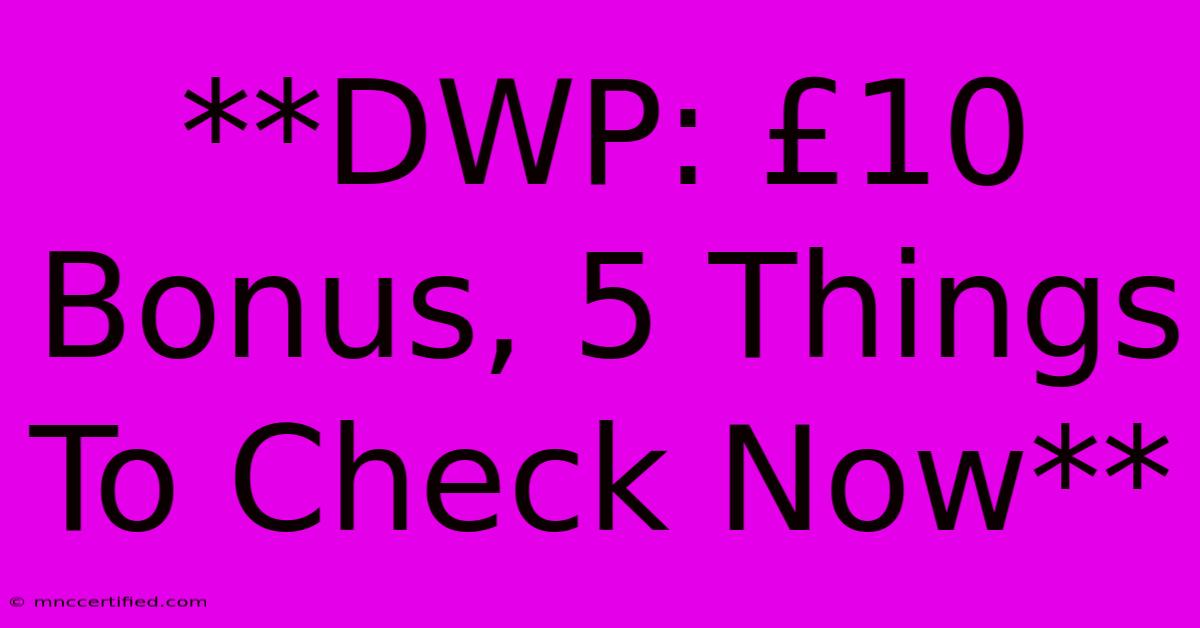**DWP: £10 Bonus, 5 Things To Check Now**

Table of Contents
DWP: £10 Bonus, 5 Things To Check Now
The Department for Work and Pensions (DWP) is offering a £10 bonus to eligible claimants, but not everyone qualifies. If you're receiving benefits from the DWP, it's crucial to check if you're eligible and how to claim your £10 bonus.
Here's what you need to know:
1. Who Qualifies for the £10 Bonus?
The DWP is providing a £10 bonus to individuals receiving certain benefits during a specific period. To qualify, you must be receiving:
- Universal Credit
- Pension Credit
- Income Support
- Income-based Jobseeker's Allowance
- Income-related Employment and Support Allowance
- Working Tax Credit
- Child Tax Credit
Important Note: The DWP has confirmed that only individuals who are receiving these benefits during a specific time period are eligible for the bonus.
2. How to Check If You're Eligible
The easiest way to determine your eligibility for the £10 bonus is to visit the official DWP website. The DWP will likely have a dedicated page with information on the bonus, including eligibility criteria.
You can also contact the DWP directly via phone or email. They can confirm your eligibility and provide any necessary details.
3. When Will You Receive the Bonus?
The DWP has not yet released specific dates for the £10 bonus payments. However, based on previous bonus schemes, you can expect to receive the payment within a few weeks of your eligibility being confirmed.
4. Where Will the Bonus Be Paid?
The £10 bonus will likely be paid into the same bank account you receive your usual benefits payment.
5. What if You're Not Eligible?
If you don't qualify for the £10 bonus, it's important to stay updated on any future DWP initiatives that might offer financial support. You can do this by:
- Subscribing to the DWP's newsletter
- Following the DWP on social media
- Regularly checking the DWP website
Don't Miss Out!
This £10 bonus is a valuable opportunity to help with your finances. Don't miss out – check your eligibility today!
Disclaimer: This article is for informational purposes only and should not be considered financial advice. It's always best to consult with a financial professional for personalized guidance.

Thank you for visiting our website wich cover about **DWP: £10 Bonus, 5 Things To Check Now**. We hope the information provided has been useful to you. Feel free to contact us if you have any questions or need further assistance. See you next time and dont miss to bookmark.
Featured Posts
-
Life Insurance Blue Cross Blue Shield
Nov 10, 2024
-
Five Star Utilities Renters Insurance
Nov 10, 2024
-
Philippine Crop Insurance Corporation
Nov 10, 2024
-
How To Invest In Airbnb With No Money
Nov 10, 2024
-
Team Name Edges Vancouver Thanks To Bogusz Goal
Nov 10, 2024